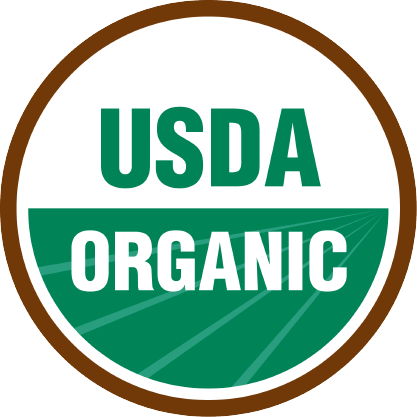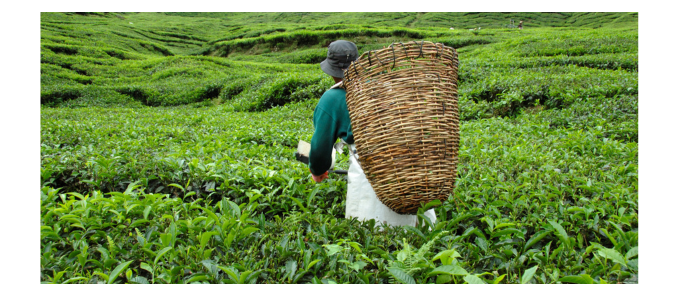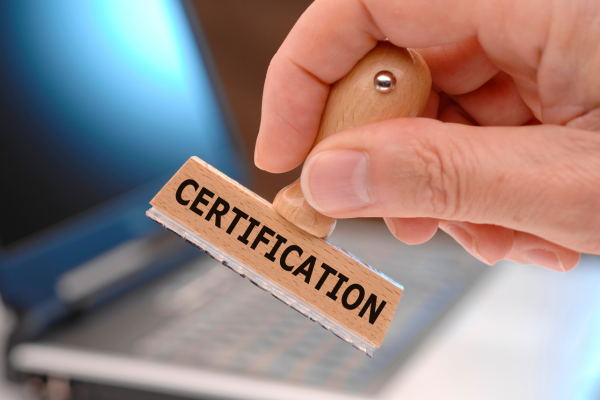The Ultimate Guide to Organic, Wildcrafted, Lab-Tested, and Geo-Authenticated Herbs
When it comes to choosing the right herbs for your health, it’s crucial to understand their quality, sourcing, and certifications. In this guide, we’ll dive deep into the different types of herbs—organic, wildcrafted, lab-tested, and geo-authenticated—and explain why these distinctions are important. Whether you're using herbs for medicinal purposes or personal wellness, choosing the best quality ensures effectiveness and safety.
 What Are Organic Herbs?
What Are Organic Herbs?
Organic herbs are grown without synthetic pesticides, herbicides, fertilizers, or genetically modified organisms (GMOs). These herbs are cultivated using sustainable farming practices such as crop rotation, composting, and natural pest management to ensure both the plant and the environment remain healthy. Organic farming prioritizes soil health and biodiversity while minimizing the environmental impact.
Why Organic Herbs Matter
- Reduced Exposure to Harmful Chemicals: Organic herbs are free from synthetic chemicals, reducing your risk of ingesting harmful residues that can impact your health over time.
- Higher Nutrient Content: Organically grown herbs are often more nutrient-dense, containing higher levels of vitamins, minerals, and antioxidants than conventionally grown herbs.
- Superior Taste and Aroma: Organic herbs are believed to have a more intense flavor and aroma, thanks to their natural growing process, which promotes the development of essential oils.
- Environmental Benefits: Organic farming practices protect the environment by reducing the use of harmful chemicals, promoting biodiversity, and preserving soil and water quality.
How to Verify Organic Certification
When purchasing organic herbs, look for trusted certifications such as USDA Organic, EcoCert, or other regional organic standards. These labels ensure the herbs meet strict criteria for being grown sustainably and without harmful chemicals.
What Are Wildcrafted Herbs?
Wildcrafted herbs are harvested from their natural habitats rather than being cultivated on farms. These herbs grow in the wild, where they are collected for medicinal, culinary, or cosmetic use. Wildcrafting taps into the natural potency of plants as they grow in their native environment, but it must be done responsibly to protect ecosystems.
 Benefits of Wildcrafted Herbs
Benefits of Wildcrafted Herbs
- Natural Potency: Wildcrafted herbs are believed to be more potent because they grow in their natural environment, free from human interference.
- Authentic and Untouched: These herbs are typically free from synthetic chemicals, providing a direct connection to nature.
- Higher Medicinal Value: The stressors of growing in the wild can cause herbs to produce higher levels of beneficial compounds such as antioxidants and adaptogens.
Considerations for Ethical Wildcrafting
- Sustainability: Harvesting herbs from the wild must be done responsibly to prevent overharvesting and protect plant populations. It’s crucial to ensure that wildcrafting practices do not deplete plant species or damage ecosystems.
- Proper Identification: Only those with expertise in plant identification should engage in wildcrafting to avoid collecting the wrong species or endangering local flora.
- Legal Regulations: In some regions, certain plants are protected by law. Make sure to follow local regulations when harvesting wild herbs.
 Certification for Wildcrafted Herbs
Certification for Wildcrafted Herbs
Look for brands or products that follow sustainable wildcrafting practices or carry certifications for ethical harvesting. These certifications ensure the herb has been responsibly sourced without harming the environment.
Lab-Tested Herbs: Ensuring Quality and Safety
Lab-tested herbs undergo rigorous testing to ensure they are pure, potent, and safe. This involves testing for contaminants such as pesticides, heavy metals, and microbial contaminants like mold and bacteria. Lab testing also verifies that the herb is the correct species and that it contains the proper active compounds.
Why Lab-Testing Matters
- Guaranteed Purity: Lab testing ensures that the herbs are free from harmful contaminants like lead, mercury, and arsenic, providing peace of mind about their safety.
- Verified Potency: Lab results confirm the concentration of active compounds, ensuring you’re getting the right dosage and effect from your herbal supplements.
- Transparency: A Certificate of Analysis (CoA) is often provided, detailing the herb’s purity, safety, and potency.
How to Verify Lab Testing
Request a Certificate of Analysis (CoA) when buying herbs, particularly those you plan to consume. This document outlines the results of lab testing and confirms the safety and authenticity of the herb.
Geo-Authenticated Herbs: Native Sourcing for Optimal Potency
Geo-authenticated herbs are herbs that are grown in their natural, native environment. In Traditional Chinese Medicine (TCM), the location where a herb is grown is believed to influence its potency and medicinal qualities. Geo-authenticated herbs ensure that the plant has been cultivated in the environment that enhances its natural properties.
Why Geo-Authentication Is Important
- Enhanced Potency: Herbs grown in their native environments develop stronger medicinal properties due to the ideal growing conditions.
- Cultural and Traditional Significance: Many herbal traditions, including TCM, emphasize the importance of sourcing herbs from their native regions for the most authentic and effective remedies.
- Guaranteed Authenticity: Geo-authenticated herbs ensure that you are getting the true species, grown in the best conditions for its intended medicinal use.
Examples of Geo-Authenticated Herbs
- Ginseng sourced from Changbai Mountain in China.
- Goji Berries from the Ningxia region.
- Huang Qi (Astragalus) from its native high-altitude regions in China.
How to Choose the Best Herbs for Your Health
When selecting herbs, it’s essential to consider their quality, sourcing, and safety. Here’s a checklist to help you choose the best herbs:
- Organic Certification: Look for organic labels that confirm the herb was grown without synthetic chemicals.
- Lab-Tested: Check for lab testing to ensure purity and potency, especially for consumable herbs.
- Sustainably Wildcrafted: If choosing wildcrafted herbs, make sure they are sourced sustainably to protect natural ecosystems.
- Geo-Authentication: For the best potency, look for herbs that are grown in their native environment.
Common Questions About Herb Certifications (FAQs)
1. How can I verify if an herb is truly organic?
Look for certification labels from trusted organizations such as USDA Organic or EcoCert. These ensure that the herb has been grown and processed following strict organic farming standards.
2. Are wildcrafted herbs better than cultivated ones?
Wildcrafted herbs often contain higher levels of active compounds due to the stress of growing in their natural environment. However, sustainability and ethical sourcing are essential to protect plant populations.
3. What should I look for in a lab-tested herb?
Ensure the herb has been tested for contaminants like heavy metals, pesticides, and microbes. Request a Certificate of Analysis to confirm the herb’s purity and safety.
4. What makes geo-authenticated herbs special?
Geo-authenticated herbs are sourced from their native regions, where they develop the strongest medicinal properties. This ensures the herb you’re using is both authentic and potent.
5. Can I trust online retailers for high-quality herbs?
Yes, but it’s essential to choose retailers that provide certifications, lab-testing information, and offer CoAs. Stick to trusted brands known for transparency and quality control.
Conclusion: The Importance of Choosing High-Quality Herbs
When it comes to herbs, quality is key. By choosing organic, wildcrafted, lab-tested, and geo-authenticated herbs, you’re not only ensuring the safety and efficacy of your remedies but also supporting sustainable and ethical practices. Always look for certifications, request lab testing when available, and opt for herbs grown in their native regions for the best potency and results.
By prioritizing these factors, you can trust that the herbs you’re using will deliver the health benefits you seek, all while supporting the environment and traditional herbal practices.

